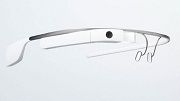Article
Google This, Google That…Google Glass in the Surgical Suite
Author(s):
Christopher Kaeding, MD, Director of Sports Medicine at Ohio State University's Wexner Medical Center, recently live-streamed surgery as he repaired a 47-year-old woman's anterior cruciate ligament.

Since its start in 1998, Google has infiltrated everyday life. It’s a noun and a verb, a common entryway onto the Internet’s information highway and an advertising platform. Now, one of Google’s new products has made a debut in the surgical suite. On August 21, 2013, Christopher Kaeding, MD, Director of Sports Medicine at Ohio State University’s Wexner Medical Center, live-streamed surgery as he repaired a 47-year-old woman’s anterior cruciate ligament (ACL), a common sports injury. A group of medical students watched the procedure remotely on laptops, as did Dr. Robert Magnussen, an assistant professor of clinical orthopedics. Dr. Magnussen provided consultation during the procedure. Google Glass made this possible.
Google Glass is a wearable computer with an optical head-mounted display that provides information in a smartphone-like hands-free format. Using Google Glass, a person can communicate with the Internet using natural language voice commands. Think headband-meets-monacle—that’s what the device looks like, although in the future, Google Glass may be fitted to eyeglasses.
Kaeding says that the device was so unobtrusive and comfortable, he forgot he was wearing it. The small monacle-like glass screen sits slightly about the right eye, but doesn’t cover it. It can be used to pull information from and transmit it to the Internet, and it contains a camera that takes pictures and video. Kaeding praised the device, which is intuitive in its operation.
Students watching the demonstration were impressed with Google Glass’s clarity. Eventually, physicians may be able to use voice commands to retrieve x-ray or MRI images, pathology reports or reference materials instantly, even in the operative environment. Participants in this experiment indicate that surgeons will be able to use this technology to consult and deliver care to patients who lack access to care in distant places.
Google's Explorer Program selected 1,000 people Americans to test Google Glass, and this surgeon was one of the few people who have access. The rest of us must wait. Find more information about Google Glass here.




